Nutrition Over 70: A Guide To Senior Dietary Needs
Maintaining proper nutrition becomes increasingly crucial as we age. For individuals over 70, following a balanced diet is the key for optimal health.
This guide will unpack the essential components of senior dietary needs, from calorie intake to the importance of vitamins and minerals. As we gracefully navigate through the different stages of life, the importance of maintaining proper nutrition becomes significantly magnified, especially for individuals in their golden years. It is an undeniable fact that as we age, our bodies undergo a myriad of changes. These changes make it increasingly crucial for those aged 70 and above to adhere to a balanced, nutritious diet to ensure optimal health and wellness. This comprehensive guide is designed to unravel and shed light on the pivotal components of senior dietary needs. It will take you on an enlightening journey, from understanding the appropriate calorie intake to fully appreciating the essential role that vitamins and minerals play in maintaining the overall well-being of seniors.

Diet is not just about the food we consume, but it's also about how we nurture our bodies from within. Therefore, it becomes even more important to focus on providing the body with the right quantity and quality of nutrients, particularly for seniors.
This guide will help you understand the significance of each meal component, the importance of hydration, and how to create a balanced meal for the elderly. Moreover, it will also explain the potential risks associated with improper nutrition, such as chronic diseases, cognitive decline, and decreased immunity. Finally, it will illustrate how a balanced and nutritious diet, paired with regular physical activity, can lead seniors towards a path of longevity, vitality, and improved quality of life. In essence, this guide aims to serve as your trusted companion in the quest for optimal health for seniors. So, whether you are a caretaker, a family member, or an individual over 70 striving for better health, this dietary guide is an indispensable tool that will help you understand and address the unique dietary needs of seniors with ease and effectiveness.
How Many Calories
Caloric needs vary depending on lifestyle, gender, and overall health. Generally, men over 70 should aim for 2000-2800 calories per day, whereas women should target 1600-2200.
However, its important to consult with a healthcare provider for a more personalized recommendation. The amount of daily caloric intake necessary for optimal health is not one-size-fits-all; it fluctuates based on several key factors such as individual lifestyle, gender, and the overall state of one's health. Generally speaking, the rule of thumb for men who are 70 years or older is to aim for a daily caloric intake ranging from 2000 to 2800 calories. This ballpark figure provides them with enough energy to sustain their bodily functions, keep their metabolic rate in check and ensure they are able to carry out their day-to-day activities without feeling fatigued. On the other hand, women in the same age bracket are advised to target a slightly lower range of 1600 to 2200 calories per day. This is primarily due to the differences in basal metabolic rate, muscle mass, and hormonal makeup between the sexes.

This caloric recommendation is designed to help women maintain a healthy weight, nourish their bodies, and support overall well-being as they age. However, it cannot be overstated that these are general guidelines and may not suit everyone's unique needs and conditions.
It is of utmost importance to consult with a healthcare provider to obtain a more personalized recommendation. These professionals can consider your specific health conditions, level of physical activity, and other personal factors to provide a more tailored nutritional strategy. They can also guide you on how to effectively distribute these calories throughout the day and provide advice on the types of food you should consume to ensure a balanced and nutritious diet. In conclusion, understanding your caloric needs is a crucial step towards achieving and maintaining optimal well-being.
How Much Protein
Protein is essential for maintaining muscle mass, immune function, and overall health. Seniors should aim for 0.
8 grams per kilogram of body weight daily. Fairlife protein shakes can be a convenient way to boost protein intake. Protein is not just a nutrient, but a cornerstone to maintaining a robust and vibrant lifestyle, particularly as we age. It plays a pivotal role in ensuring muscle strength, bolstering immune function, and promoting overall health, acting as the building blocks of our bodies. As we grow older, our bodies' need for protein becomes even more vital as it helps to combat muscle loss and supports our immune system in fighting off potential health threats. Seniors, in particular, should aim for a target of 0. 8 grams per kilogram of body weight on a daily basis, to ensure they are getting enough of this vital nutrient.
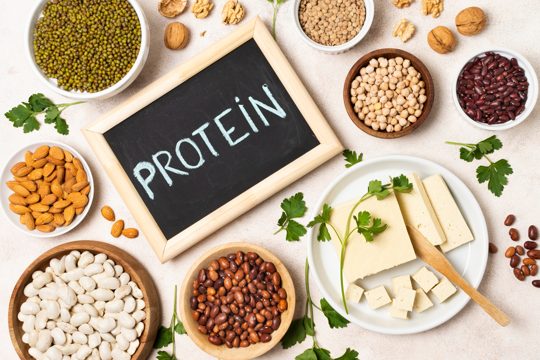
However, meeting this daily protein requirement can sometimes be a challenge, especially when considering dietary restrictions, taste preferences, or simply a busy lifestyle. This is where Fairlife protein shakes come into play.
They serve as a convenient, and more importantly, a delicious solution to boost protein intake. Each serving is packed with high-quality protein, making it an ideal choice for seniors who want to ensure they're meeting their daily protein goals. Factoring in these protein shakes into your daily routine not only helps in maintaining your muscle mass and immune function, but also contributes to your overall wellbeing. Convenient, tasty, and packed with the protein your body needs, Fairlife protein shakes are an excellent tool for supporting your health as you age. Ultimately, ensuring adequate protein intake is one key step towards embracing a healthier lifestyle throughout your golden years. So, take control of your health today with the right diet, and remember, every sip of a Fairlife protein shake is a step towards a healthier you.
How Much Fiber
Fiber helps with digestion and can lower the risk of heart disease and diabetes. Its recommended that seniors consume at least 28-30 grams of fiber per day.
Foods like fruits, vegetables, and whole grains are good sources. Fiber plays an incredibly important role in our diets, particularly in aiding digestion, reducing the risk of severe health conditions such as heart disease and diabetes. This natural wonder is something we often overlook, but understanding its benefits can be life-changing, especially for seniors. As we age, our bodies undergo various changes, and maintaining a well-balanced diet becomes even more crucial. For seniors, it's recommended that at least 28-30 grams of fiber is included in their daily diet. But where can we find high-quality sources of fiber? Look no further than the bounty of nature.
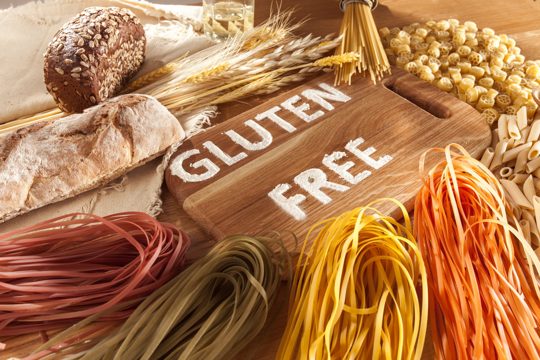
Delicious and nutritious foods like fruits, vegetables, and whole grains are excellent sources of fiber. Not only do they help meet the daily fiber requirement, but they also provide a wealth of other essential nutrients and antioxidants.
Brightly colored fruits like apples, bananas, oranges, and berries are fiber-rich and packed with vitamins. Vegetables such as broccoli, carrots, and Brussels sprouts, too, are high in fiber and offer a range of health benefits. Then there are whole grains - a powerhouse of fiber. Foods like brown rice, oatmeal, and whole wheat bread are not only hearty and satisfying, but they also help significantly increase your overall fiber intake. So, remember, maintaining a diet rich in fiber isn't just about meeting a daily quota; it's about embracing a healthier, more balanced lifestyle that will help you age gracefully and live life to the fullest.
How Many Carbohydrates
Carbohydrates should make up about 45-65% of total daily calories. They provide the body with energy and help regulate blood glucose levels.
Carbs should mainly come from complex sources like whole grains, fruits, and vegetables. The importance of carbohydrates in our daily diet cannot be overstated. These essential macronutrients should ideally constitute approximately 45-65% of our total daily caloric intake. This is because carbohydrates play a pivotal role in supplying our bodies with the fuel it needs to function optimally. They give us the energy required to perform our daily activities, be it a strenuous workout or merely the energy to think and focus on our work. Moreover, carbohydrates perform a critical role in regulating our blood glucose levels. By maintaining a steady supply of glucose in our bloodstream, they prevent sudden spikes or crashes in blood sugar levels and keep our energy levels stable throughout the day.
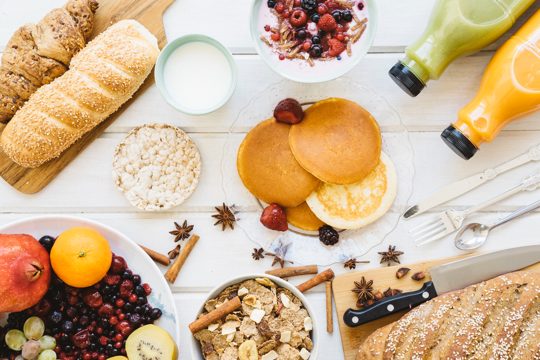
A balanced carbohydrate intake is vital for those who suffer from diabetes or hypoglycemia, but it’s also necessary for the general population to ensure optimal health and energy levels. When it comes to choosing the right sources of carbohydrates, it's essential to focus on complex carbohydrates, primarily derived from whole grains, fruits, and vegetables.
These food sources provide not only the necessary carbs our bodies need but also come packed with fiber, vitamins, and minerals that contribute to overall wellbeing. Whole grains, like brown rice and whole wheat bread, offer sustained energy release, unlike their refined counterparts. Similarly, fruits and vegetables provide a wealth of essential nutrients, along with the necessary carbs. In contrast, simple carbohydrates like white bread or sugary snacks can lead to a quick surge and subsequent drop in energy levels, leaving you feeling tired and drained. So, being mindful of the type of carbohydrates you consume can go a long way in maintaining your energy and health. Making conscious, wholesome choices can help you meet your daily carbohydrate intake without compromising on your health or energy levels.
How Much Fat
Fat is essential for many bodily functions, but its important to focus on healthy fats from sources like olive oil, avocados, and fish. Aim for fats to comprise about 20-35% of daily caloric intake.
Fat is an indispensable component of our diet, playing a pivotal role in numerous bodily functions, including absorption of vitamins, regulation of hormones, and maintenance of overall cellular health. However, it's crucial to remember that not all fats are created equal. To lead a healthy lifestyle, it's advisable to put the spotlight on 'healthy fats. ' These beneficial fats primarily come from sources such as olive oil, avocados, and fish. Olive oil, a key player in the Mediterranean diet, is praised for its high content of monounsaturated fats and antioxidants. Similarly, avocados are a nutrient-dense fruit that boasts a high percentage of healthy fats, along with a host of other vitamins and minerals.
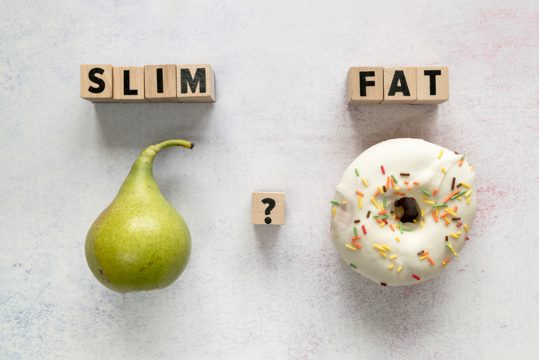
Fish, on the other hand, is a rich source of omega-3 fatty acids, which have been linked to heart health and cognitive function. When it comes to daily caloric intake, fats should ideally represent about 20-35% of the total.
This doesn't mean loading up on fried foods and processed snacks, but rather strategically incorporating healthy fats into your meals. By swapping out harmful trans and saturated fats for healthier alternatives, you can harness the power of fats to fuel your body and support overall wellness. In the broader context of balanced nutrition, it's all about making informed, mindful decisions about what you're putting on your plate. In essence, we should strive to understand the role of fats in our diet and respect it, recognizing that the right kind of fats can contribute significantly to our health and wellbeing.
Vitamins and Minerals
Seniors need more of certain vitamins and minerals, such as calcium, vitamin D, and B12. A varied diet can provide these, but supplements might be necessary in some cases.
As we age, the nutritional needs of our bodies change and become more specific. Seniors, in particular, require an increased intake of specific vitamins and minerals such as calcium, vitamin D, and B12. These are critical for maintaining bone health, boosting the immune system, and supporting cognitive functions, respectively. A diverse and balanced diet, rich in dairy products, leafy greens, and lean proteins can provide these essential nutrients. For instance, calcium can be found in milk and cheese, vitamin D in fish and fortified dairy products, and vitamin B12 in meats and cereals. However, due to factors like reduced appetite, dietary restrictions, or decreased nutrient absorption, it may be challenging for some seniors to get all the required nutrients from their diet alone.

In such scenarios, supplements can play a crucial role in filling nutritional gaps. Vitamin D supplements can be especially beneficial in winter months when sunlight, a natural source of vitamin D, is scarce.
Calcium supplements can help in maintaining bone density, and B12 supplements can assist with red blood cell formation and neurological function. However, it's important to consult with a healthcare provider before starting any supplemental regimen, as they can provide guidance based on individual health needs and circumstances. The golden years can indeed be the healthiest years, provided that seniors pay careful attention to their dietary intake and supplement use as necessary. Nutritional vigilance can ensure that seniors not only live longer but also enjoy a better quality of life in their later years.
Fairlife Protein Shake Diet
The Fairlife protein shake diet can be a beneficial addition to a seniors nutrition plan. These shakes are high in protein and come in a variety of flavors, making them a convenient and tasty way to meet daily protein needs.
The Fairlife protein shake diet has emerged as a highly beneficial addition to a senior's nutrition plan, revolutionizing the way protein intake is managed for older adults. These shakes, packed with high-quality protein, serve as a powerhouse of nutrition, making them an indispensable part of a balanced diet. They are not just a simple protein source, but rather, an all-encompassing meal replacement or snack option that can be seamlessly incorporated into your daily routine. Moreover, these shakes come in an impressive array of flavors. From rich chocolate to sweet vanilla, and even succulent strawberries, there's a flavor to suit every palate.

This variety not only makes them a convenient choice but also a delightful treat that one can look forward to. No longer does meeting daily protein requirements have to be a monotonous or bland experience.
With Fairlife protein shakes, every sip is a burst of flavor, turning a simple nutrition necessity into an enjoyable moment. In essence, the Fairlife protein shake diet elevates a senior's nutrition plan from ordinary to extraordinary. Its high protein content and flavor diversity make it a two-fold solution - catering to nutritional needs while also satisfying taste buds. It's more than just a protein shake; it's a lifestyle choice that promotes healthier living and more enjoyable eating, making it a truly invaluable addition to any senior's diet.
Herba Life Dietary
Herba Life offers dietary products that can complement a balanced diet. These include meal replacement shakes and supplements that can help ensure seniors get the nutrients they need.
Herba Life, a globally recognized brand, is renowned for its commitment to promoting wellness and healthier lifestyles by offering a wide array of dietary products. These products are meticulously designed to seamlessly blend with your daily diet and fill up any nutritional gaps that might exist. They present an ideal solution for individuals who strive to maintain a balanced diet, but find it challenging due to various lifestyle or dietary restrictions. Among the array of products offered by Herba Life, the meal replacement shakes stand out due to their convenience and comprehensive nutritional profile. They are an excellent substitute for those days when preparing a full meal seems daunting or time-consuming.
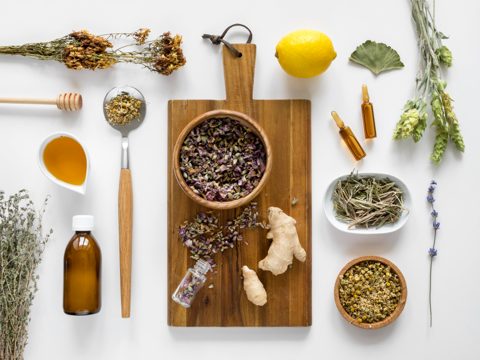
These shakes are packed with the right balance of proteins, carbohydrates, and essential vitamins and minerals, ensuring that you are not missing out on vital nutrients even when you skip a meal. In addition, for seniors whose nutritional needs are often unique and heightened, Herba Life provides specially-formulated supplements.
Aging can sometimes result in diminished appetite or difficulty in absorbing certain nutrients from food. These supplements are designed to address these concerns by providing seniors with the critical nutrients they need in easily digestible forms. They are a great way to ensure optimal health and vitality in the golden years. Thus, Herba Life's dietary products not only complement a balanced diet but also empower individuals to take charge of their nutrition and wellness.
Liver Fat Diet
Reducing liver fat is crucial for overall health. A diet low in saturated fats and high in fiber, paired with regular exercise, can help maintain a healthy liver.
Reducing liver fat is not just beneficial, it's absolutely essential for our overall health and well-being. The liver is one of the most hardworking organs in our body, performing numerous functions that keep us healthy. It aids in digestion, stores vitamins and iron, eliminates toxins, and even helps regulate our metabolism. Therefore, maintaining a healthy liver should be a priority in our personal healthcare routine. One of the most effective ways to do this is by adopting a diet low in saturated fats and high in fiber. Incorporating a variety of nutrient-rich foods into our daily meals like fresh fruits, leafy green vegetables, whole grains, and lean proteins can provide the necessary fiber our body needs, while simultaneously reducing the intake of harmful saturated fats.

Foods rich in Omega-3 fatty acids such as fish, nuts, and seeds are also beneficial in maintaining a healthy liver. In addition to a balanced diet, regular exercise is another vital component in liver health.
Engaging in physical activities not only aids in weight control but also helps reduce liver fat by improving metabolism and promoting a healthier lifestyle. Whether it's a brisk walk in the park, a vigorous workout at the gym, or a relaxing yoga session, any form of exercise can significantly contribute to a healthier liver. To sum up, maintaining a healthy liver is a multifaceted effort that requires both dietary modifications and regular physical activity. A conscious effort to eat a diet low in saturated fats and high in fiber, paired with regular exercise, can pave the way towards achieving and maintaining a healthy liver. And remember, a healthy liver is the cornerstone of a healthy body.
Gluten Free Diets
A gluten-free diet is essential for those with celiac disease or gluten intolerance. Many nutritious foods are naturally gluten-free, and there are plenty of gluten-free alternatives for common staples.
A gluten-free diet is an absolute non-negotiable for individuals diagnosed with celiac disease or those who battle gluten intolerance. This dietary restriction, though it may seem daunting at first, is not a sentence to a bland and boring food life. In fact, a myriad of nutritious and flavorful foods are naturally free of gluten, offering a wide range of choices for those on such diets. Think about the colorful array of fresh fruits and vegetables, the rich and hearty beans and lentils, and the vast selection of lean meats, poultry, and fish. Not to mention, the variety of nuts and seeds that can serve as delicious snacks or garnishes. All these food groups are naturally gluten-free and packed with essential vitamins and nutrients necessary for a balanced diet.
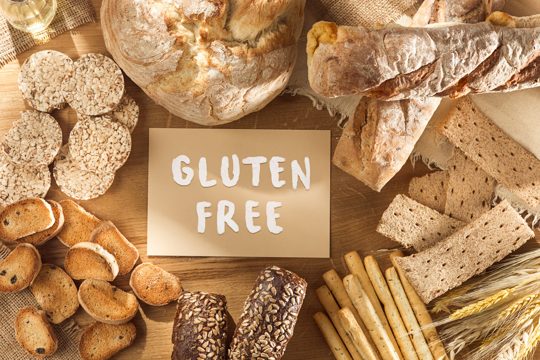
Moreover, the food industry has been quick to respond to the growing need for gluten-free products, and as a result, there are now plenty of gluten-free alternatives available for common food staples. From gluten-free bread, pasta, and cereals to gluten-free sauces and condiments, it's now easier than ever to find replacements for your favorite foods.
So, whether you're a fan of morning toast, a lover of spaghetti dinners, or a devotee of sandwich lunches, rest assured, there's a gluten-free alternative ready for you. So, while a gluten-free diet may be a necessity for those with celiac disease or gluten intolerance, it doesn't need to be a burden. With the wide array of naturally gluten-free foods and the growing variety of gluten-free alternatives, it's entirely possible to enjoy a diverse, nutritious, and delicious diet without the worry of gluten. In fact, exploring these options can lead to discovering new favorite dishes and flavors. So, embrace the journey and savor the adventure of a gluten-free lifestyle.
Balancing Nutrient Intake
Balancing nutrient intake is vital for seniors. This means consuming a variety of foods to ensure theyre getting a mix of essential nutrients.
Understanding and executing a well-balanced nutrient regime is crucial, particularly for seniors. This is no small task, but rather a lifelong commitment to health and vitality. This means not just consuming food for the sake of quelling hunger, but consciously choosing a diverse array of edibles to guarantee a comprehensive intake of essential nutrients. It's about embracing the beautiful spectrum of fruits, vegetables, lean proteins, whole grains, and healthy fats, each contributing unique health benefits. These can range from supporting heart health to boosting immunity, aiding digestion, and promoting mental acuity.
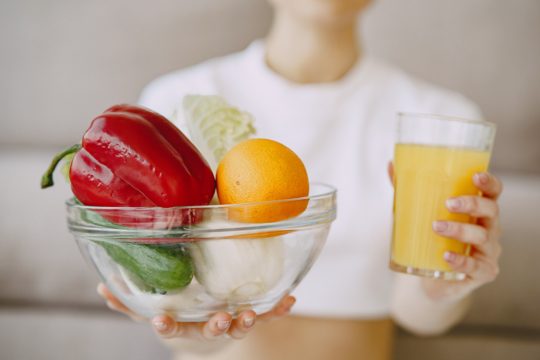
As we age, our bodies' needs evolve, and so should our dietary habits. It's not merely about survival, but thriving, feeling energized and remaining active in our golden years.
Moreover, balancing nutrient intake holds the key to managing chronic conditions prevalent among seniors. It's more than just a strategy, it's a proactive step towards preventive healthcare. With the right blend of nutrients, seniors can maintain their physical strength, bolster their mental wellbeing, and enjoy an enhanced quality of life. The art of balancing nutrient intake is indeed a cornerstone of healthy aging, making it an indispensable part of seniors' daily lives.
Conclusion
Maintaining proper nutrition over 70 is crucial for overall well-being. By focusing on calorie intake, protein, fiber, carbohydrates, fat, and vitamins and minerals, seniors can ensure theyre meeting their dietary needs.
Incorporating products like Fairlife protein shakes or Herba Life dietary supplements can aid in achieving this balance. Maintaining optimal nutrition beyond the age of 70 is not only critical but can significantly enhance one's overall well-being and vitality. It plays a pivotal role in bolstering immunological defenses, promoting mental acuity, and enhancing energy levels. Emphasizing the importance of a well-rounded diet is imperative, one that incorporates the right balance of calorie intake, protein, fiber, carbohydrates, fat, and an array of essential vitamins and minerals. These are the building blocks of life that fuel the body and ensure it functions at its best. Incorporating products like Fairlife protein shakes or Herba Life dietary supplements can be an excellent strategy in achieving this balance.

Fairlife protein shakes are laden with rich proteins that help build and repair body tissues, making them a wonderful addition to a senior's diet. On the other hand, Herba Life dietary supplements are chock-full of essential vitamins and minerals, helping to fill any nutritional gaps in one's diet.
Yet, maintaining a balanced diet is not only about what we consume but also how we consume it. It's about making mindful choices, understanding the nutritional value of the food we eat, and relishing the pleasure that comes from nourishing our bodies. It's about embracing a lifestyle that promotes health and longevity, and using products that align with this goal. It's about finding the joy in the journey of maintaining good health. Thus, eating well in our twilight years is not a chore, but a rewarding and enriching experience that contributes significantly to our overall quality of life.
About us
Welcome to SeniorCaresHub! Welcome to our comprehensive senior care destination! We pride ourselves on being a trusted resource for all things related to caring for aging loved ones. We understand the unique needs and challenges that come with senior care, and our mission is to provide you with the information, resources, and support you need to confidently navigate this journey and help you provide the best possible care for your aging loved one.

